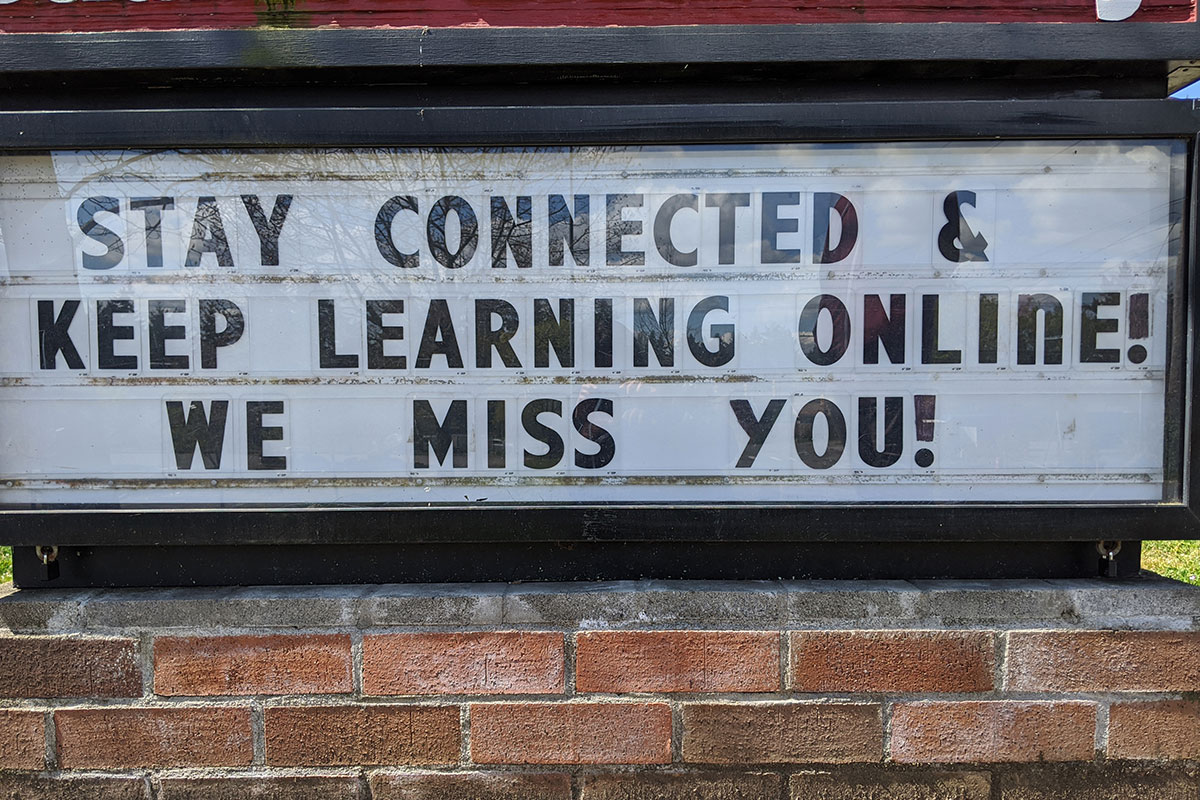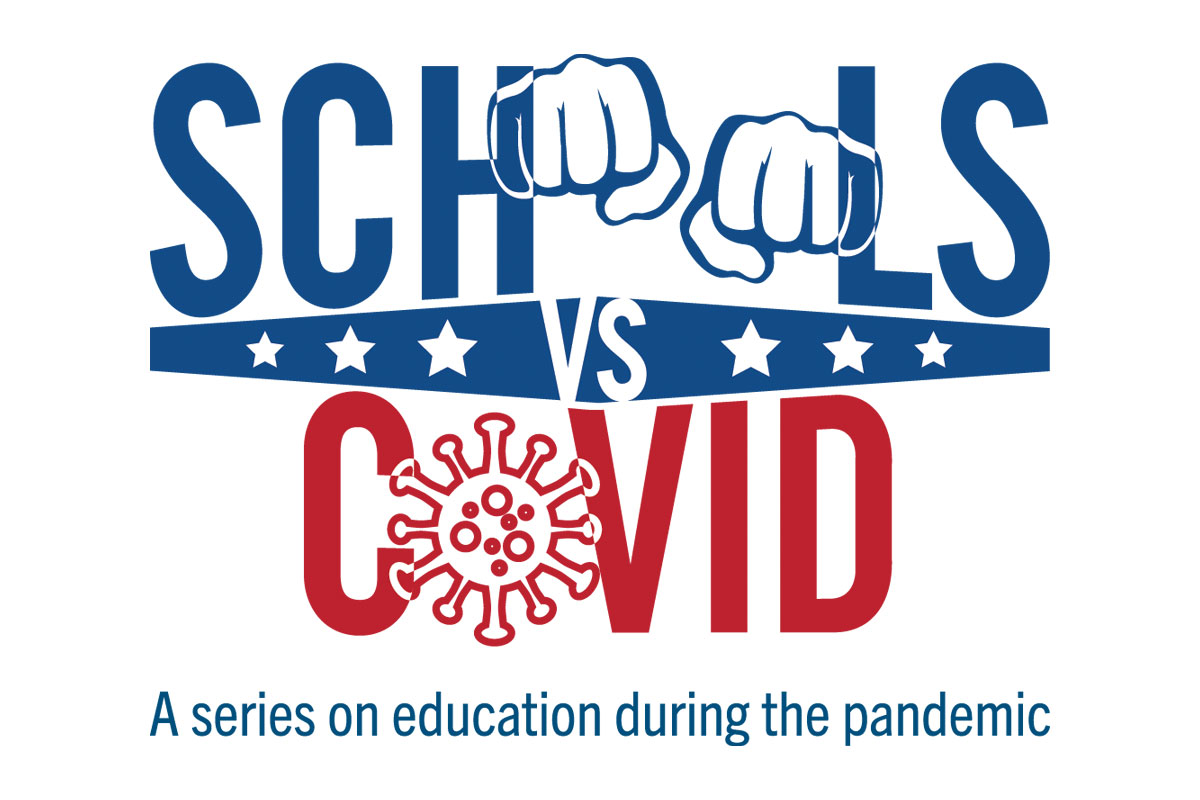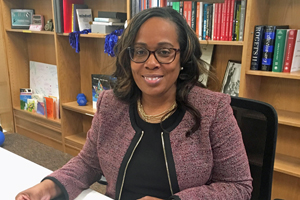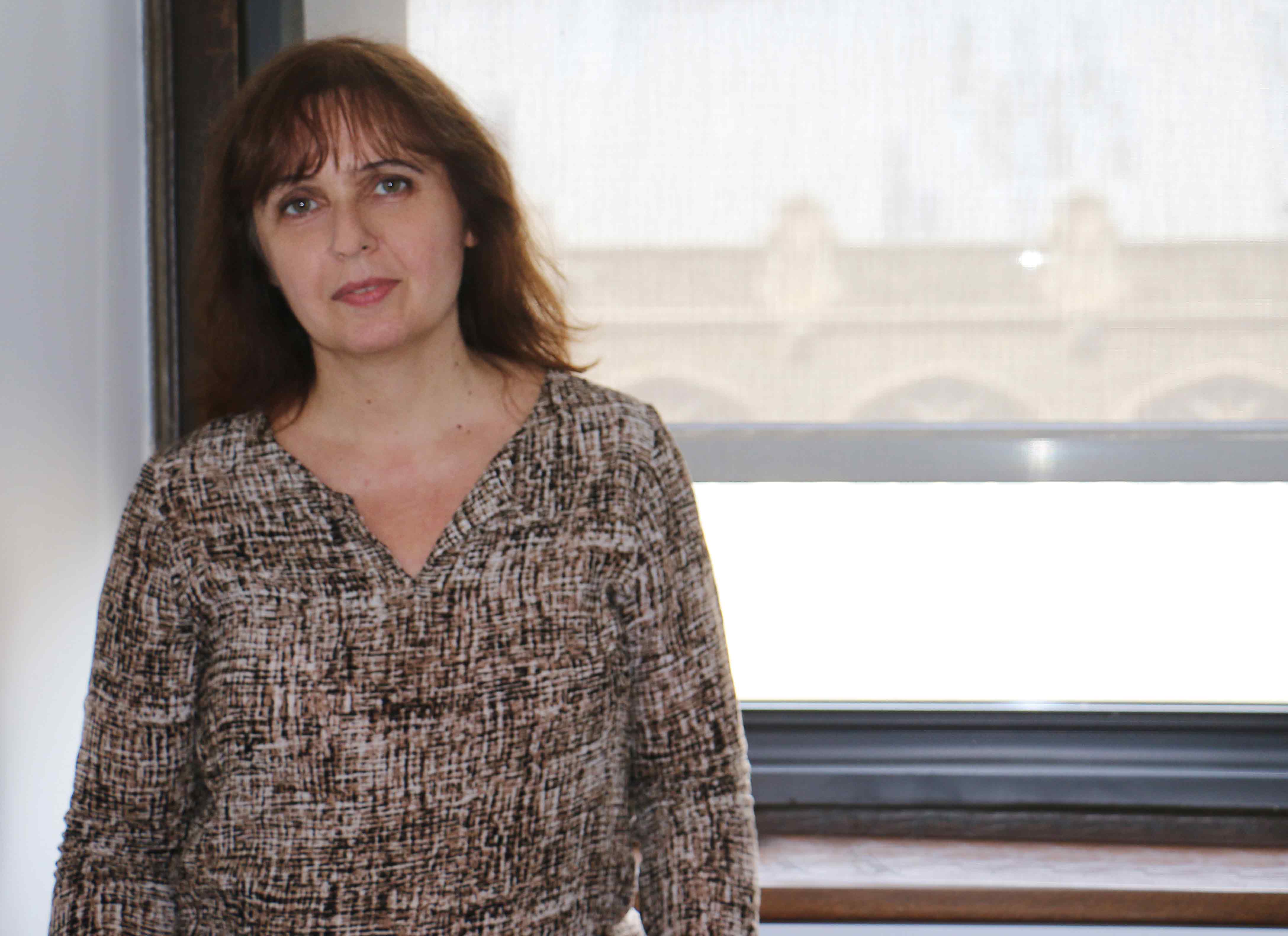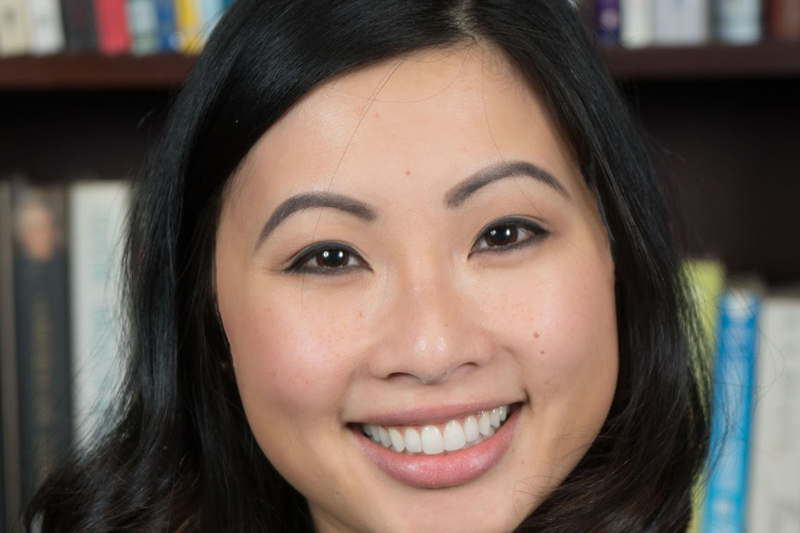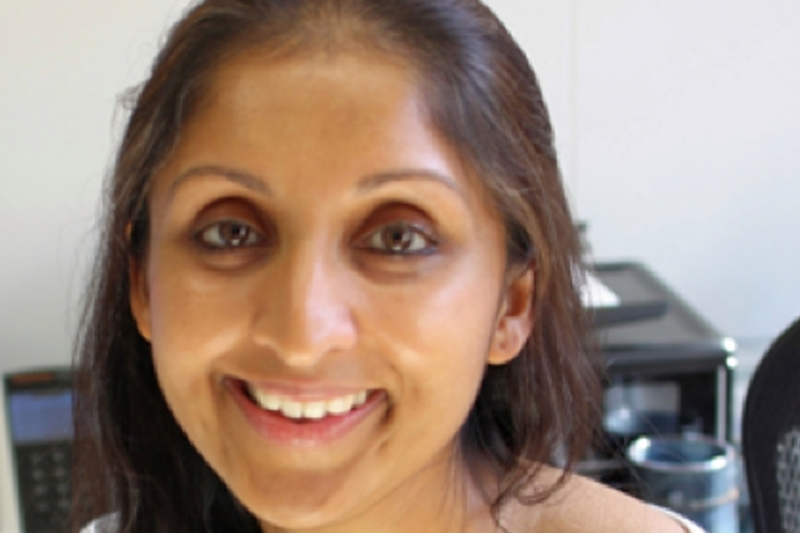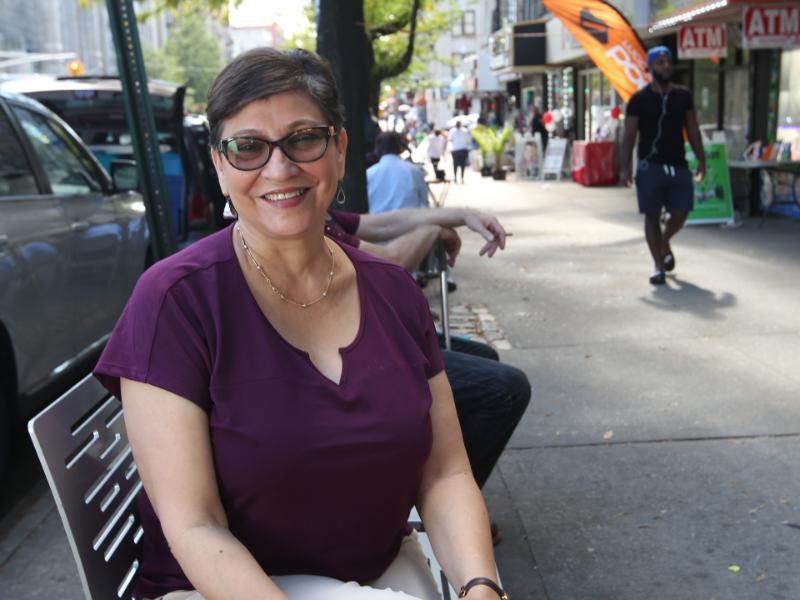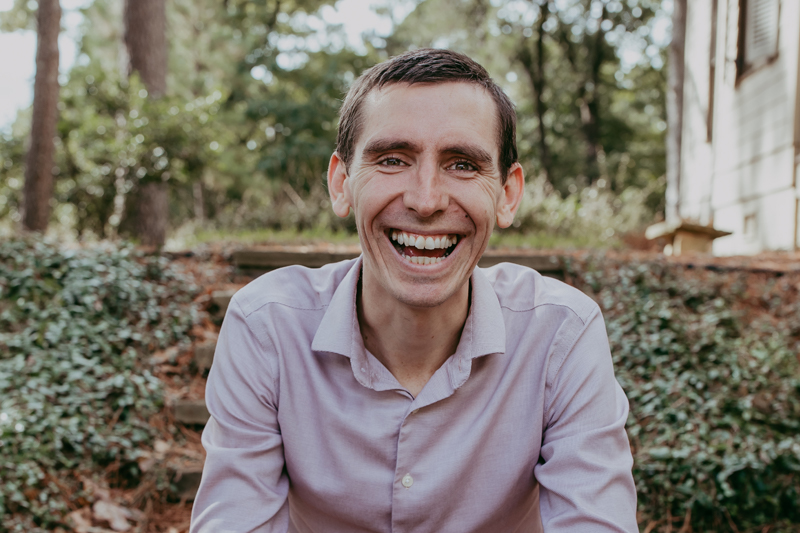When Katrina McCombs (M.Ed. ’96) was appointed Superintendent of the Camden (New Jersey) Public School System two years ago, she instituted training for teachers to identify home issues and lead trauma-informed care practices such as restorative circles. That move reflected a deep understanding of the city and its challenges: McCombs grew up in Camden — one of the nation’s poorest and most crime-ridden metropolises — and graduated with honors from Camden High School. As a Camden kindergarten teacher during the 1990s, she was so troubled by the problems that kids were bringing to her classroom — violence, drugs, poor health, parents’ incarceration, homelessness — that she enrolled at Teachers College to better understand their needs. (She studied with developmental psychologist Jeanne Brooks-Gunn and did research on how father absence affected the cognitive development of African American girls.)
Yet nothing in McCombs’ experience could have prepared her for the psychological and emotional fallout from the COVID pandemic. The early months were exhausting, as schools struggled simply to make the transition online and make sure children and their families had food — but at least people were still talking about a return to normalcy in the fall.
In May, the death of George Floyd at the hands of Minneapolis police spotlighted a spate of police killings of unarmed Black people, launching a wave of protests across the country and around the world. [Read a story on how educators, school psychologists and public health professionals understand the psychological toll taken by racial violence, and how Camden schools have responded.]
EMPTY FEELINGS Midtown Public Charter School in Jackson, Mississippi, where the principal is Kevin Parkinson, a graduate of TC's New Orleans-based Summer Principals Academy, is struggling to establish a new normal for students, who mostly attend virtually. (Video: WJTV.com)
In late August, having upgraded ventilation in its 100-year-old school buildings and provided a Chromebook and internet access for each child, Camden was planning to reopen with students taking classes on campus two days a week and working remotely the rest of the time. But just before the semester began, the bottom fell out — not only in Camden, but in many other districts nationwide. Teachers were either unwilling or unable to show up in person, leaving the system unable to guarantee small classes and social distancing. Parents were opting to keep their kids home. By Labor Day, Camden had opted to stay fully remote, at least until January.
We are asking our families, again, to be flexible with us, because any decision that's being made right now could change.
—Katrina McCombs (M.Ed. ’96), Superintendent of the Camden (NJ) Public School System
“Our priority right now is the health and safety of our students, our teachers and our staff members,” McCombs said in early September. “So we’ve pivoted. But we are asking our families, again, to be flexible with us, because any decision that's being made right now could change.”
Unanswered Questions
Of all the challenges schools face from the COVID pandemic — partitioning classrooms, bridging the digital divide, teaching effectively online — uncertainty may be the most daunting of all. Case in point: As this story was being posted, New York City's infection rate was reaching 3 percent, the highest it has been since early last spring, and Mayor Bill de Blasio was warning that all schools would again close and conduct learning online.
“School psychologists are having to deal with the anxiety that goes along with uncertainty — not just for their kids, but also for parents, educators and staff,” says Prerna Arora, Assistant Professor of School Psychology and Director of Teachers College’s School Mental Health for Minority Youth and Families (SMILE) Research Lab. “First it was ‘What are things going to look like in the fall?’ but now it’s ‘What are things going to look like next month, or even next week?’ And that’s so hard, because how do you prepare when you don't know what’s going to happen?”
Since the pandemic began, several studies have found increased rates of depression, anxiety and suicidal ideation among teenagers, particularly those in racial and ethnic minority groups, and the general consensus is that those numbers are going to increase.
“Mental health consequences of the COVID-19 crisis, including suicidal behavior, are likely to be present for a long time and peak later than the actual pandemic,” asserts a study published in June in in the international medical journal QJM by Leo Sher, Professor of Psychiatry at the Icahn School of Medicine at Mount Sinai.
Meanwhile, Arora says, “there are a lot of kids in schools who are not getting the support services that they were getting.”
For their part, school psychologists, accustomed to seeing students on a regular basis, are feeling the loss of physical contact. It’s harder to reach children who might need services, and it’s harder to establish new relationships.
[Read a story about the work of TC graduates who work as school psychologists in California and Georgia.]
“School psychologists are normally really well placed to be able to build trust in a relationship with these children and families because they're there every day,” Arora says. “They see kids in the hallways, and, in a school community that has fostered a positive relationship, they can talk to them. But right now, there's none of that.”
In Camden, both the superintendent’s office and school staff are doing their best to identify and track children most vulnerable to abuse and violence. Still, McCombs is afraid that “we won't be able to reach some children. And that for some children, even with all of our systems and outreach efforts, that somehow it won't be enough.”
Lena Verdeli, Associate Professor of Psychology & Education and Director of TC’s Global Mental Health Lab, concurs that there’s ample reason to worry.
School psychologists are normally really well placed to be able to build trust in a relationship with these children and families because they're there every day, They see kids in the hallways, and, in a school community that has fostered a positive relationship, they can talk to them. But right now, there's none of that.
—Prerna Arora, Assistant Professor of School Psychology
“People report deep isolation and feeling cut off from the world at this point,” says Verdeli, whose own work focuses on trauma and the mental health needs of refugees and survivors of disasters. “Human communities survive through attachment, we are wired to seek and stay close to each other. When disaster — especially a collective one — strikes, our impulse is to go and join our community. And the fact that we cannot do that, since it can make us deathly sick, is profoundly confusing and painful.
“On top of health concerns for self and family, loss of jobs and income makes many parents overly stressed, anxious and therefore irritable. They're losing basic resources. We know that access to resources, together with social support and cohesion, help mitigate the painful impact of disasters. But in this case, the effects of the disaster are really prolonged. We’re running a marathon now and nobody sees the end of this yet.”
Adapting on the Ground
Last spring, for example,, Kevin Parkinson, Principal of Midtown Public Charter School in Jackson, Mississippi, was having trouble seeing past the challenges he faced each week.

CONNECTIVITY IS KEY The schools in Camden, New Jersey, where TC alumna Katrina McCombs is Superintendent, have sought to ensure that all students have internet access. (Source: Camden City School District)
“It was a very, very scary time,” said Parkinson, a 2019 graduate of the New Orleans-based branch of Teachers College’s Summer Principals Academy (SPA NOLA). All of the school’s students qualify for free or reduced-price lunch, so when Midtown shut its doors, Parkinson says, most were “just trying to figure out how they were going to eat. The disruption to daily life was unimaginable.”
Now, the school, which opened for the fall 2020 semester in August, is settling into a new normal. Instruction is almost entirely remote, with only a handful of students without internet access or home supervision attending class in person, but there is structure.
One of the ways that we can provide emotional security for our students is to give them a routine, even though we're in a digital world.
—Kevin Parkinson, Principal of Midtown Public Charter School in Jackson, Mississippi, and 2019 graduate TC's Summer Principals Academy in New Orleans
“One of the ways that we can provide emotional security for our students is to give them a routine, even though we're in a digital world,” Parkinson says. “Part of that routine includes having cohorts with homeroom time. Just as if we were in-person, that includes really intentional ways that teachers can check in with students, whether that's a mood meter or journal prompts. Then the teachers can pass those messages along to other staff members who can step in and support kids when we notice things that are concerning.”
Cindy Huang, a child psychologist and Assistant Professor of Counseling Psychology at Teachers College, affirms that routine is essential.
“All the ambiguity is extremely stressful for parents, and it trickles down to the kids,” says Huang. “So knowing what to expect, having a schedule, knowing what's going to happen from one hour to the next — that's huge. As someone who works with parents, I want to help parents prepare as best as they can. When people feel prepared, they will feel better.” The challenge with the COVID pandemic, she acknowledges, is that “preparing,” to a certain extent, means embracing the continuing uncertainty. “One thing that parents can do is to really think about this in a more ongoing way. The pandemic is not something that's going to end next semester, so if you prepare for its continuation, you naturally build in new routines and expectations for yourself and your children. This helps bring back some of the control parents are longing for.”
Experts advise managing expectations in other ways as well.
One thing that parents can do is to really think about this in a more ongoing way. The pandemic is not something that's going to end next semester, so if you prepare for its continuation, you naturally build in new routines and expectations for yourself and your children. This helps bring back some of the control parents are longing for.
—Cindy Huang, Assistant Professor of Counseling Psychology
“What we’re defining as ‘learning’ is inevitably going to be different than it was prior to the onset of COVID-19,” says Sonali Rajan, Associate Professor of Health Education. “And that means also readjusting our thinking around testing, evaluation and other metrics that we may have previously used to assess kids’ progress schools. And this certainly holds for students at all different grade levels.
“As a parent, this entire experience has, of course, been enormously challenging,” adds Rajan, mother of a five-year-old. “What we have all had to do is just let go of whatever expectation any of us have had about what we thought kindergarten, third grade, eighth grade, was ‘supposed’ to look like. Whatever expectations we each held for our children and ourselves around this school year are being challenged. I’m not saying our children won’t learn and aren’t going to have friends or be able to socialize in certain ways, but it’s just going to look different. And one thing I am trying to do is to be open to the possibility that new forms of learning and growth could emerge from this.”
Whatever expectations we each held for our children and ourselves around this school year are being challenged. I’m not saying our children won’t learn and aren’t going to have friends or be able to socialize in certain ways, but it’s just going to look different. And one thing I am trying to do is to be open to the possibility that new forms of learning and growth could emerge from this.
—Sonali Rajan, Associate Professor of Health Education
The Grownups in the Room
Of course, teachers and parents are struggling with shorter-term issues as well, making it vital to support all care providers “particularly when they get bombarded like they did,” says Psychologist Dinelia Rosa, Ph.D., Director of TC’s Dean Hope Center for Educational & Psychological Services, which both trains students from TC’s clinical, counseling, and school psychology programs and provides affordable counseling services to low-income neighborhoods surrounding the campus.
The burdens of the pandemic have driven some professionals — psychiatrists and psychologists included — to suicide, Rosa says, making it essential that, to borrow a phrase from the commercial airlines, grownups put on their own oxygen masks first.
“What do you do to do self-care? How are you protecting yourself? That’s something that we are trying to integrate in the training of our students,” she says. “Because if you cannot take care of yourself, you cannot help others. That’s been very, very clear during this pandemic. So we tell our patients and our staff, ‘You have to do exercise. You have to do meditation.’ But then how many of us do it? That’s the question mark.”
In Camden, McCombs says that part of supporting teachers is about “providing them with the training and tools necessary to be able to deliver remote instruction in a way where they feel effective.” But just as important, she says, is professional development that “supports our teachers in understanding the warning signs of stress and understanding why it's important to make sure that they're taking care of themselves holistically, because they're putting out so much love and effort and time and commitment.”
Mary Mendenhall, Associate Professor of Practice in the Department of International & Transcultural Studies, who is a leading authority on preparing teachers to work with refugee and displaced populations, argues that everyone has a stake in better supporting teachers.
“Teachers are shouldering an enormous burden — we're asking them to be social workers and psychologists who provide for the emotional needs of kids — but no one is taking care of the teachers themselves. We need to provide them with emotional support and training, or else we're setting them up for failures that will be detrimental to the kids in their charge and also lead to their own burnout.”
And ultimately, parents must be kind to themselves, even if it means easing up on some rules — for example, allowing kids more screen time.
“It’s absolutely OK!” says Huang. “I will actually go as far as to say it's not detrimental to your kid's health, as long as you're doing it safely. Safely means doing things like monitoring their activity, limiting who they have contact with online, and setting up healthy behaviors like regular screen breaks. As a parent myself, I don’t blame anybody for having kids on the screen because what else can you do right now? Kids need to decompress, and the screen can be how they do it. And you get less of a battle when you don’t fight them on it.”
Any way parents can make their lives easier and find some peace should be a priority because it will benefit the children eventually. I can't stress that enough. Whatever strengthens the parent is a gift to the child. We have to get through right now, right?
—Lena Verdeli, Associate Professor of Psychology & Education
Verdeli takes that approach a step further.
“Any way parents can make their lives easier and find some peace should be a priority because it will benefit the children eventually. I can’t stress that enough. Whatever strengthens the parent is a gift to the child. We have to get through right now, right?”
Silver Linings
The new virtual world has produced some positive developments. Some kids — those with social anxiety, for example — are thriving.
“They don't feel that they have to push themselves all the time and are not tormented by that anxiety,” says Verdeli. “Also, the kids that are getting bullied at school get some respite and learn online without distractions and anxieties.”
TC psychology students, who have now had training in both virtual and in-person therapy, report some clients feeling more comfortable in the online environment.
“Students who were seeing clients prior to the pandemic, they feel that some clients, for some reason, are opening up more,” says Rosa. “Maybe it's the fact that there’s a distancing element, or that they're in their own space, but they tend to open up more than they were in the room. So I think the students are being able to put things in a balance and see what they feel they’re missing, but also what they feel they’re gaining. The advanced students can compare and learn from both and actually are better prepared to go to the workforce once they graduate.”
Rajan is hopeful that the forced hiatus from standardized testing and other rigorous evaluation metrics will reset priorities in the education world. “I think there might be a real opportunity here to rethink and reimagine what's worth measuring and what isn’t,” she says.
And, perhaps, to value what can’t always be measured.
“I’m incredibly proud of the effort that students and staff and everybody have been putting forward,” says Parkinson. “And I am hopeful that though this is a very unique way to learn, that students will walk away feeling more prepared and readier for what’s next for them.”
In Camden, McCombs is hopeful that by January, students will be back in class with educators who have been able to “take advantage of a negative situation and turn it into something positive that can serve to support our students in a better way, even after the pandemic is over.
“We’re just trying to find the silver lining behind each cloud because our young people deserve that from us.”
